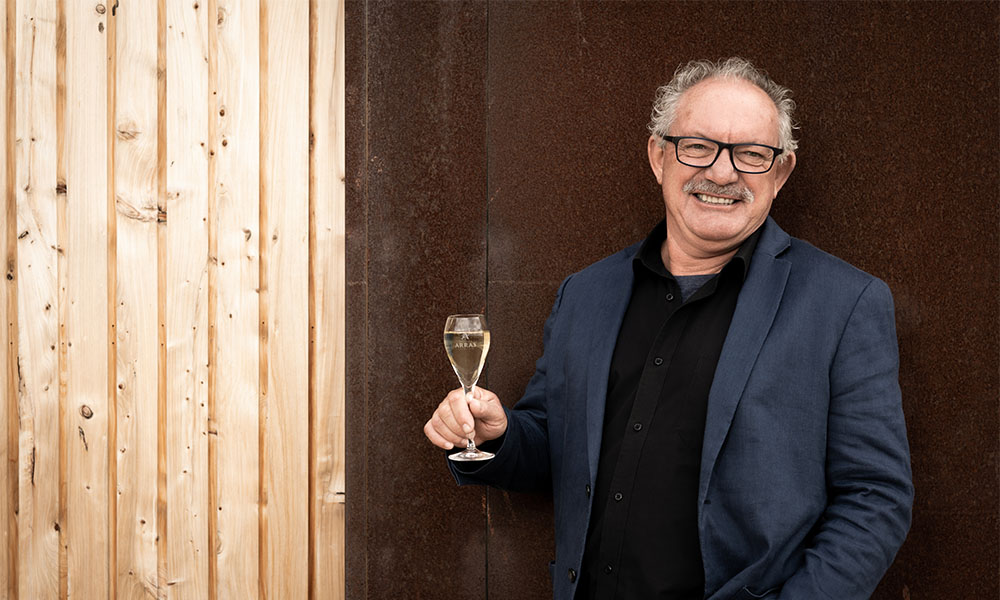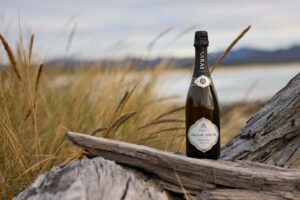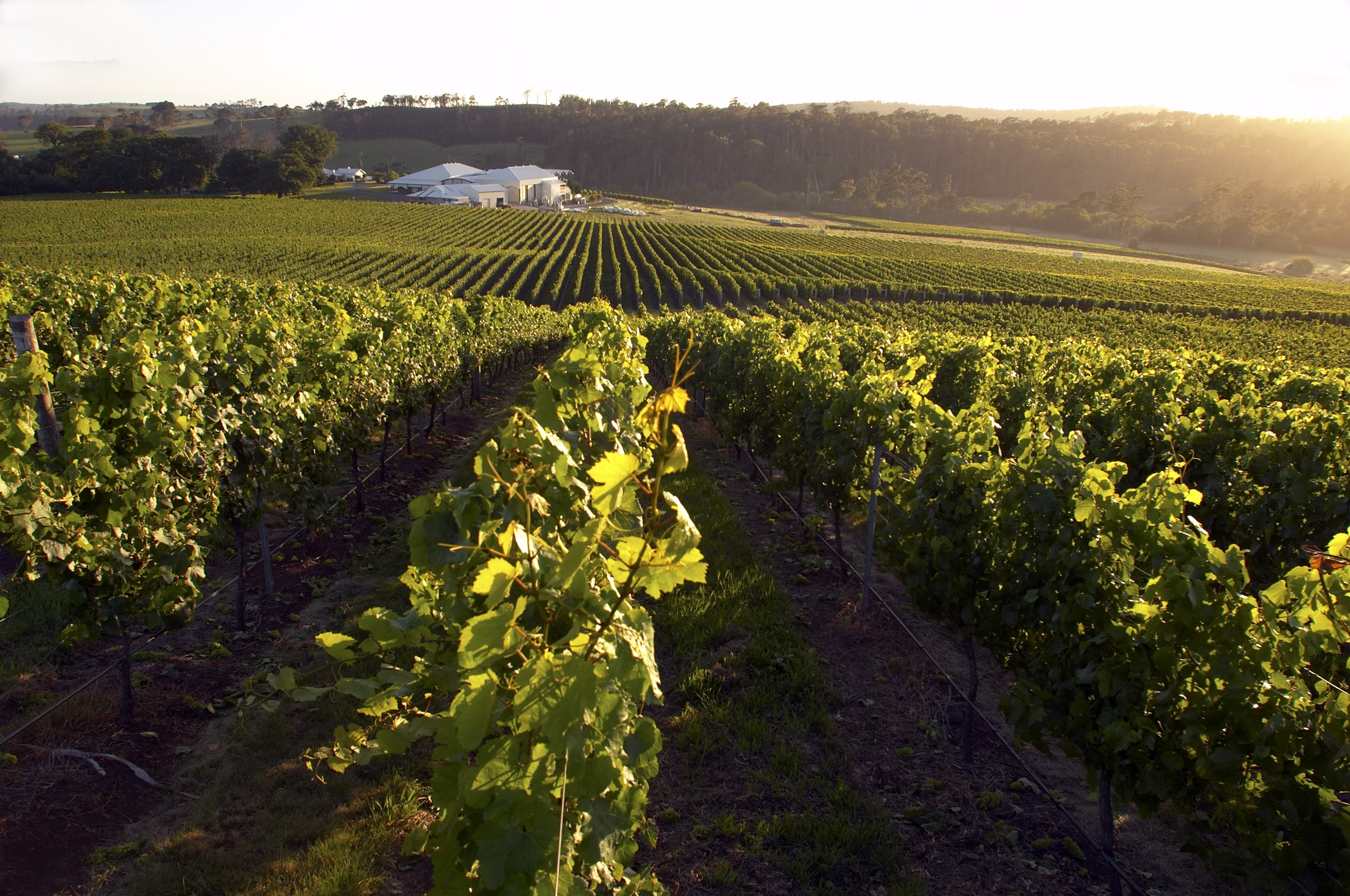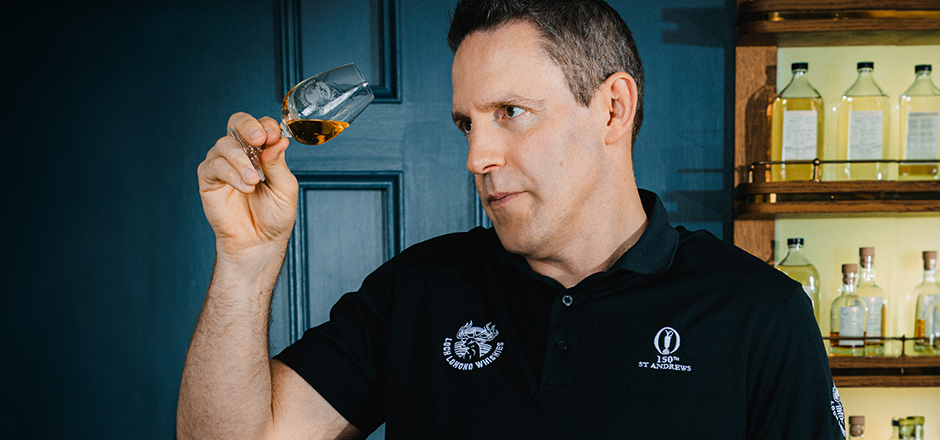- Meet the Maker
Meet the Maker: Ed Carr – House of Arras
Read Time 5 Minutes
Posted 05 Sep 2022
By Vintage Cellars
We talked to Ed Carr, Chief Winemaker at
House of Arras, to find out more about the esteemed Tasmanian sparkling
producer.
Recently crowned International Sparkling Winemaker of the Year, Ed Carr, had barely tasted a drop of wine until he chanced a job in the industry in his 20s which kicked off a 40-year career. Carr’s expertise in sparkling winemaking has seen him firmly place Australia – and in particular Tasmania – on the wine map when it comes to crafting revered cool-climate sparkling wines.


What was your introduction to wine?
Growing up, we were classic ‘Ten Pound Poms’ who came to Australia in the 1960s and wine wasn’t part of family life like it was in Italian families who had a glass with every meal. I must say I was more of a beer and bourbon man!
But wine came into my life during my 20s while I was studying chemistry and food microbiology at university when I landed a job as a laboratory technician in a winery that made sparkling wine. With my microbiology background, I was tasked with solving fermentation problems which was the spark that led me into pursuing wine as a career. From then on, it was a progressive interest in wine and winemaking in general, where I found myself taking more of a scientific approach to the process.
How has sparkling wine grown in Australia since you started in the '80s?

We started House of Arras in 1995, with the goal of producing a sparkling wine that would be equivalent to the best in the world, and also be distinctly Tasmanian. I must say, at the time it felt quite ambitious, but I’m so proud of what we’ve done as a team at House of Arras in our almost 30 years of operation. Our recent accolades as a winery, and my recognition as Sparkling Winemaker of the Year at the International Wine Challenge have been an honour to receive – especially being from our fellow industry peers.
How has the Tasmanian wine scene evolved since you started House of Arras?
I remember when I first went to Tasmania in 1988 and there was less than 50 hectares of vineyards – and today there’s around 2,800ha. That says a lot about the growth of Tasmania as a cool-climate wine region and it’s been a highlight of my career to see that evolution and be a part of that new chapter.
For us here at House of Arras, we’ve really come to appreciate the great longevity of Tasmanian wines and the fantastic balance of complexity and freshness they hold. We’re also always learning about the Tasmanian climate and how each viticultural sub-region acts and therefore which varietals are best suited to grow there.
What is your approach to sparkling winemaking at House of Arras?
At House of Arras, we aim to build complexity and depth by ageing our wines on triage (or lees) for extended periods of time. This also works to keep the wine’s acidity and freshness in tow, with that balance something I believe constitutes to some of the best examples of sparkling wine across the world.
We also focus on selecting quality Tasmanian fruit for our sparkling’s to produce the best resulting wine that we can. That means taking the time to understand each site’s terroir and nurturing our fruit all year round – not just during vintage. Dedicating time to learn from each vintage and its challenges is also important so we ensure quality is maintained. This attention to detail carries on into the winemaking process, too where we continue to put aside time at each step to understand how each element ties in to craft the finished product.
What separates a great winemaker?
To me, a great winemaker dedicates time to training their palate to recognise certain qualities in wine. There’s no lie that it takes a lot of practice and time to do so, but by training up your palate you can create the characters that you like or remove the characters that you don’t want in your wine.
I also believe great winemakers are always keen to learn and understand there’s no end-point to that learning. It’s vital to be inquisitive to new techniques and technologies in the winemaking space and also be open-minded to change.

What do you wish Australians knew about locally made sparkling wine?
While most may think of sparkling wine as a call for any celebratory occasion, I’d also like to remind drinkers how well it also pairs with food. Sparkling wine is not just a drink to kick off a dinner party – you can make it last longer into evening events. With House of Arras sparkling, if you let them bubble away for a while and warm up a tad … the flavours evolve a little bit further which opens up more options for pairings. For example, our Blanc de Blancs pairs beautifully with fresh seafood and our EJ Carr Late Disgorged is a great match with chicken dishes.
Would you consider branching into other wine varieties?
I believe in specialisation, whether you’re an aeronautical engineer; a mechanic or a winemaker. If you specialise in certain things, you can do it better and your total focus becomes an obsession. I look at sparkling wine and still think I have more to learn and more to do, so I don’t have an interest in other wine styles… apart from consuming them!
House of Arras wine to try
Lifted aromas of honeysuckle, white peach and citrus which are complemented with the secondary maturation characters reminiscent of fresh pastries.
Red fruit driven with generous flavours, minerality and texture crafted from the three noble varieties Pinot Noir, Chardonnay and Pinot Meunier.
A stylish blend of Pinot Noir and Chardonnay with persistence of flavour, perfect balance and finishing with a vibrant natural acidity. The wine expresses delightful complexity from extensive maturation.
- Meet the Maker
- View More Posts Meet the Maker








